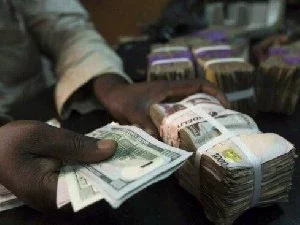
Businesses face known setbacks emanating from poor power supply, infrastructure deficits and high credit costs which only a few operators can survive.
The top lists hardly included dollar shortage-induced currency risks faced by businesses that took dollar loans. One such borrower is the Managing Director of Outsource Merchants Limited, Chisom Obinna.
When the Lagos-based entrepreneur was in dire need of a loan to complete an ongoing import project, a family friend, who, in the first quarter got a huge payoff from a top oil company came to his rescue by offering him soft loans at zero interest.
The creditor, who was last year paid off by Addax Petroleum Limited, following a take-over deal with the Nigerian National Petroleum Company Limited (NNPCL), gave Obinna a $10,000 loan payable before this year's end.
But the loan came with a caveat. It must be repaid in dollars, not naira. The creditor had explained that he needed to hedge his funds against currency risks given the rate at which the naira has depreciated in the last year.
The creditor said the confidence in the naira as a means of transaction settlement had significantly dropped after the local currency lost over 30 per cent of its value in 2022, and is projected to record over 40 per cent depreciation this year.
The naira has lost over 38 per cent of its value since June when the Central Bank of Nigeria (CBN) adopted a unified exchange rate structure and collapsed all rates into the Investors' and Exporters (I and E) window.
"I had no option but to accept to repay the loan in the same currency it came: US dollars even though I needed a loan in naira. I knew the risks of paying back in dollars because of the currency risk, which is real but that was the only way I could access the loan. It cost us an extra N10 million to source the $30,000 loan during the period of repayment in October," Obinna said.
The dollar crunch, triggered by a sharp drop in dollar revenue and reduced investment inflows from Foreign Direct Investments, forced the CBN to ration dollar supplies to key sectors of the economy, forcing many businesses whose input costs are in dollars to incur heavy costs.
The naira at the weekend, exchanged at N1, 160/$1 in the parallel market, and N890/$1 in the official market. This created an N270 premium between the parallel and official markets. The local currency has lost over 40 per cent of its value in both markets this year.
Aside from creditors insisting on lending in dollars and getting paid in dollars, some businesses whose input costs are priced in dollars also offer their services in dollars to hedge against currency risks. Others who cannot do so, are raising the cost of their products and services to absorb the high cost of dollar loan repayment.
Other services such as pricing and payment for private jet charter in dollars, allocation of 50 per cent salary for oil and telecom workers in dollars and house rents in several parts of Lagos, Abuja and Port Harcourt priced in dollars have come to buttress the rising power of the dollar in domestic transaction settlement.
The Chief Executive Officer of Falcon Aerospace Limited, Chukwuerika Achum, said its three premium services, Vivajets, CharterXE and FlyPJX- designed to ease business jet booking and promote inclusive access to services- are all priced in dollars.
"The naira depreciation fears in sectors where inputs are in dollars have made us price our services in dollars to hedge against currency risks," he explained during the launch of the service in Ikeja Lagos.
Bismarck Rewane, an economist said the naira crisis has increased the cost of aviation fuel (Jet A1) and raised operating costs for airline operators.
For instance, Jet fuel prices rose by 60 per cent to $2 per litre, up from $1.08 per litre in 2022. This has increased the cost of airfares, triggered lower demand for flights and weighed on revenue.
The Group Managing Director of C and I Leasing Plc, Ugoji Lenin Ugoji said the company is careful about taking dollar loans because of the risks associated with it, at this time.
He said the company had to increase its forex revenue and reduce dollar loans to avoid asset mismatch. "That decision gives C and I Leasing good stability to withstand turbulence," he said.
Ugoji said the availability of foreign exchange for businesses will be a deciding factor in how well the economy performs in 2024.
He said many foreign investors were interested in coming into the country but they also want to be assured their investments in naira are safe.
He said: "The CBN remains in the best position to advise the government on the steps to take to overcome the ongoing forex crisis. However, businesses are advised to plan their forex transaction decisions wisely. There is nothing bad if 30 per cent of a company's loans are in dollars, but it also needs dollar revenue to pay the dollar debt."
Strategies to beat the dollar crunch
Nigerian banks that, a few years back, featured prominently in funding dollar transactions for clients are now turning their back on such deals as dollar scarcity persists.
Manufacturers are resorting to homegrown substitutes for imported raw materials to stay in business.
Currently, the pains and agonies of import-dependent businesses have continued to soar in an economy where people's purchasing power is waning.
At the Ladipo Market in Lagos, motorists now buy locally-fabricated vehicle shock absorbers, brake pads and even engine oil as prices of imported versions go out of reach.
The Managing Director of Bendock Limited, Steven Abiodun said demand for foreign goods has dropped as prices soared with many Nigerians looking inwards for the closest substitutes of products and services.
"The naira exchange rate at the parallel market stood at N1, 160/$1 making goods and services linked to the dollar unaffordable for anyone with a legitimate cause. Importers have run out of options and face consumers whose income cannot accommodate new price hikes and are going for local substitutes," he said.
Banks move to preserve Forex
To bridge the dollar supply gap, support local industry and preserve forex, commercial banks have commenced a Bank Verification Number (BVN) watch list for customers who diverted dollars disbursed for foreign trips to other uses.
The affected customers obtained Business Travel Allowance (BTA) and Personal Travel Allowance (PTA) for their foreign trips fraudulently or failed to follow set rules for such transactions.
Findings showed that banks are now publishing the names of the defaulting customers on their websites to show seriousness in the implementation of the sanctions.
A check on several banks' websites showed that over 6,000 customers are booked by the lenders on a monthly basis for forex infractions.
The affected customers' BVNs were also listed alongside their names in what banks tagged "PTA/BTA Defaulters' List."
The banks are also maintaining a list of defaulters, and applying sanctions specified by the CBN, including such defaulters not allowed to access forex from official windows in the future.
The CBN had called attention to incidents of customers presenting fake documents such as expired passports, invalid flight tickets or open tickets that are cancelled after they acquire forex.
To reduce forex diversion, commercial banks also commenced card-based dollar disbursements to travellers in need of dollars-PTA and BTA. The travellers were previously paid in cash.
While First Bank customers now use the First Bank Travel Card to access PTA and BTA, Access Bank customers rely on the Access Travel Debit Card and Unity Bank customers use the Unity Travel Card, among others.
The banks have equally cut PTA and BTA by 50 per cent from $4,000 to $2,000, even as they reduced requests to twice a year from once a quarter.
Aside from these steps, international school fees and upkeep requests are to be processed within 120 days from the date of approval.
Banks have also directed that all such applications are processed and disbursed subject to forex availability and proper documentation provided the account to be debited is sufficiently funded to cover the Form A charge and other processing fees.
Views from stakeholders
The Group Managing Director/CEO of Zenith Bank Plc and Chairman of the Body of Banks' Chief Executive Officers, Ebenezer Onyeagwu said banks are working with the CBN to ensure that all issues around Forex Forwards are resolved to strengthen the naira.
He said: "FX Forwards has been caged and the banking sector is moving. By the next two weeks, FX Forwards will end even as the banking industry is ready to support the CBN to achieve its goals of exchange rate stability."
The Managing Director of Afrinvest West Africa Limited, Ike Chioke believes the incorporation of a long-term diversified strategy in fiscal policy is required to cushion shocks in various segments of the economy.
For him, the persistent pressure on the naira could have been minimised if a counter-fiscal policy had been developed.
"To reduce this pressure, an inward-looking policy (tax incentives, infrastructure development and production subsidy) should be emphasised to reduce the dependence on imported goods," Chioke said.
He explained that the drop in Nigeria's oil production and oil theft have reduced dollar earnings and worsened the naira decline.
He said: "As oil production dropped due to oil theft and insecurity, dollar earnings have also dipped," he said.
Continuing, Chioke said: "In the meantime, authorities should double down on efforts to check insecurity, curb oil theft, tame inflation, anchor market yield on Monetary Policy Rate, and improve the business environment. The sustained high demand for FX in the parallel market due to lingering weak supply in the official market coupled with inefficient processing time would continue to undermine the objective of ongoing reforms in the financial markets."
Head of Macro-Strategy at FIM Partners and former Global Chief Economist at Renaissance Capital, Charlie Robertson agreed with Chioke.
Robertson noted that the Nigerian economy has been going through a rough patch since 2014 when the price of oil crashed. He explained that a persistently high inflation rate means a persistently weak currency.
Robertson's views, contained in his earlier advice to the CBN, urged the regulator to focus more on controlling inflation. "If the CBN can get inflation to three per cent and sticks there, then, in 10 years, the naira could be N400/N450 per dollar. So, it's all about inflation and the central bank's success in fighting it," he added.
He said the exchange rate or the external value of the naira is the most important price in the Nigerian economy as a lot depends on how the exchange rate is managed, from the inflow of foreign investment to how much domestic industries invest and how many Nigerians are employed.
In emailed notes to investors, the Trading Desk Manager of AZA, a global forex trading firm, Murega Mungai said the depreciation of the naira will continue until there are regulatory sanctions against illegal forex dealers, especially exporters who fail to remit export proceeds to government coffers as spelt out in the CBN's Foreign Exchange Manual.
The Managing Director of Economic Associates, Dr Ayo Teriba said there was a need to recognise that the challenge with the forex market is supply-shortfall related and take critical steps to bring market and regulatory transparency.
He said: "Just like what you have when there is a food shortage. You need to open your grain reserves to boost supply and prices will adjust."
Teriba said the government should look at ways to boost dollar supply, including allowing foreign investors to take equity in national assets to raise dollars that would boost naira. He also called for a competitive forex market, where everyone is on a level playing field.
"Aside from the banks, other players in the market, including bureau de change operators should have equal access to the market. Banks are not licensed to trade forex, but the CBN has given them that role and excluded BDCs that have the right license for the transactions. There should be freedom of entry and exit for even Fintechs to play in the market, and every dollar earned will add to the market liquidity," Teriba advised.
The former Registrar of the Chartered Institute of Bankers of Nigeria (CIBN), Dr. Uju Ogubunka said Nigeria's trade balance has been weakened by its inability to produce and earn enough forex.
He said Nigeria must find new ways to boost production to earn more dollars and boost foreign reserves. Ogubunka, who is also the President of Bank Customers' Association of Nigeria said aside from boosting production, there is the need to tackle insecurity to enable farmers to go to their farms.
He said such an effort will help increase crop yields and bring more dollar earnings for the economy that will firm up the naira to protect businesses and individuals that take dollar loans.
According to him, insecurity and political uncertainty are delaying several corporate investment decisions that would have brought in more dollars to the economy.
The President of the Association of Bureau De Change Operators of Nigeria (ABCON), Dr Aminu Gwadabe called for stiffer measures on platforms for cryptocurrency traders as they have become a conduit for diaspora remittances diversion. He called for the review of the financial architecture to include BDCs in the harmonised forex market.
Gwadabe said there was a need to encourage market participants to source forex from independent windows to boost liquidity. According to him, exchange rate unification can only thrive where the market participants are given an enabling environment and all players are treated fairly and equally.
CBN tackles forex market fears
The CBN Governor, Olayemi Cardoso said a thorough assessment of the economy revealed significant challenges, including high and rising inflation, inadequate foreign exchange supply; depreciation of the exchange rate, limited external reserves, weakened output and high unemployment.
These challenges, he said, have led to increased interest rates, discouraging investments in productive activities.
"Within the banking system, high inflation has affected asset quality and solvency ratios. Additionally, the persistent depreciation of the naira poses a significant risk for domestic banks with foreign exchange exposures," he said.
Cardoso said: "Considering recent developments within our domestic economy, it is evident that we are facing significant macro-economic and social challenges. These challenges stem from a variety of factors, including adverse global shocks, unfavourable domestic imbalances, structural rigidities, and the unintended consequences of certain corrective policy measures implemented to restore and realign our macroeconomic landscape."
For instance, the continuous decline in Nigeria's crude oil production has further weakened its already inadequate economic diversification. This has led to a decline in government revenue and foreign exchange inflows, while simultaneously witnessing a growth in public expenditures and a deterioration in macroeconomic indicators, which has constrained its policy options.
Consequently, the country has witnessed the fiscal deficit and public debt increase, placing additional strain on external reserves and contributing to exchange rate instability.
To ensure stability, curb speculation, and restore confidence in the foreign exchange market, the CBN recently lifted the ban on 43 items from accessing the official foreign exchange market, allowing market forces to determine exchange rates based on the Willing Buyer - Willing Seller principle.
Cardoso noted that the 43 items were never outrightly banned by the government.
"The CBN had imposed restrictions on their access to foreign exchange in the official market. However, these restrictions resulted in increased demand for foreign exchange in the parallel market, leading to the depreciation of the exchange rate in that segment of the Nigerian Foreign Exchange Market (NFEM) and widening the premium between the parallel and official market."
"Studies show that during the period when the 43 items were restricted, there was a 51 per cent increase in trade evasion by importers accessing the foreign exchange market, resulting in a revenue drop of approximately $1.4 billion, or $275 million annually, between 2015 and 2019," he said.
Other stakeholders said the most important determinant of the value of the naira is productivity and competitive state of the economy.
For them, other factors like terms of trade, inflation differential, public debt, current-account deficits, interest rates, political stability and overall economic health also determine the naira exchange rate which is central to what becomes of dollar borrowers and their businesses.


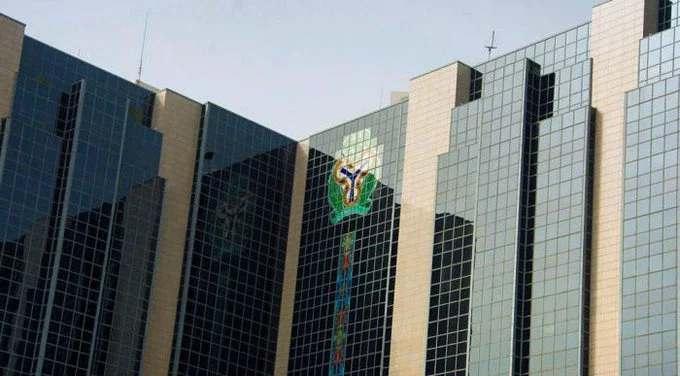
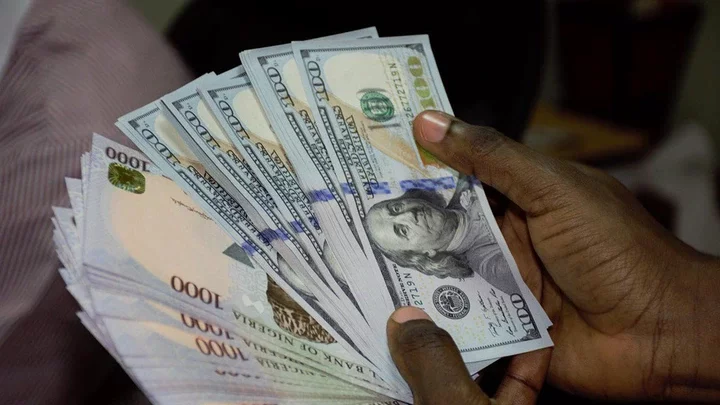
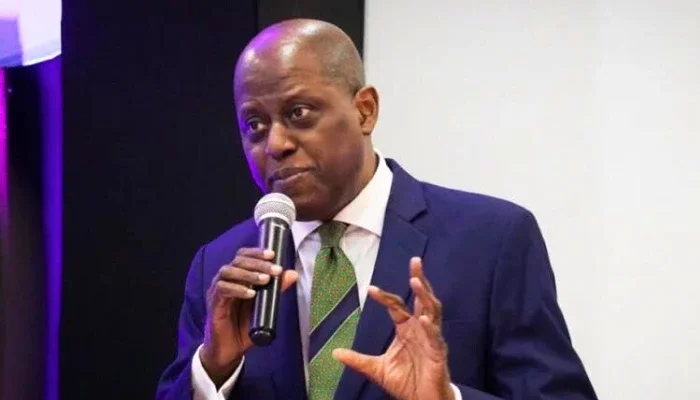
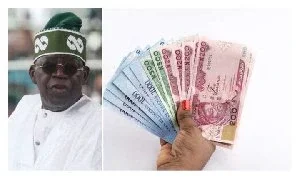
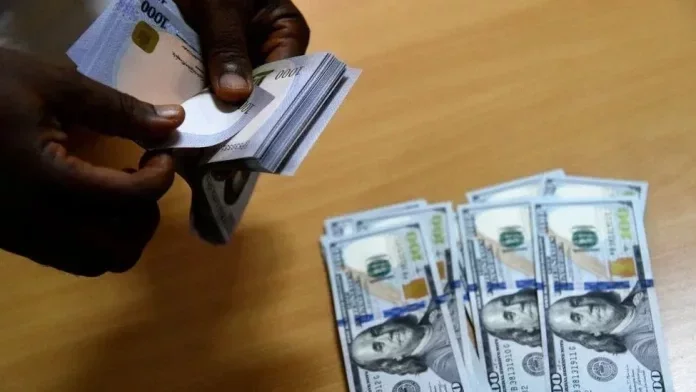

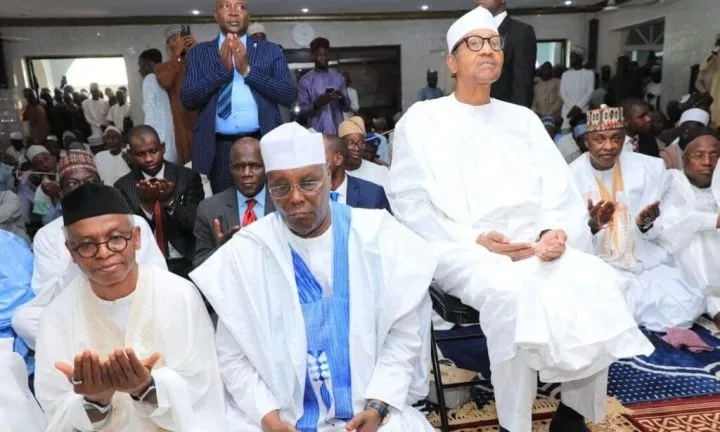





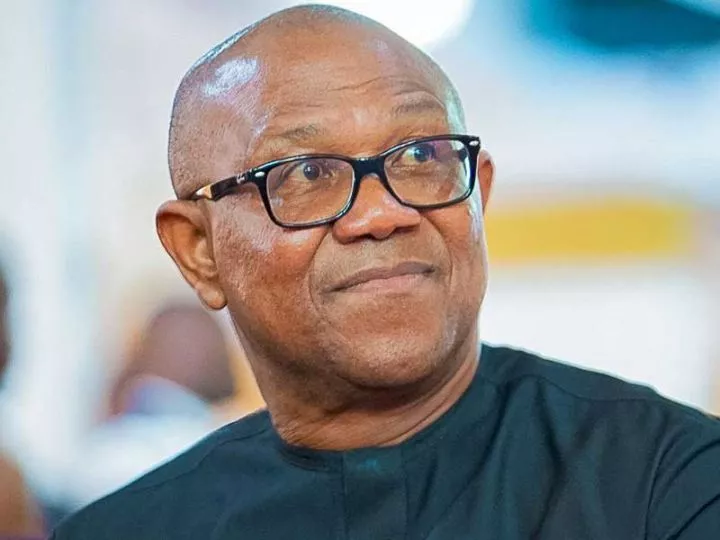


Comments